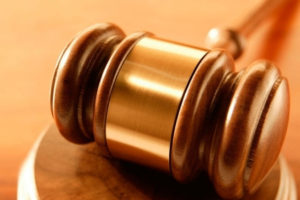 Selecting a lawyer can be difficult , particularly when you are under stress because of a police charge or some other traffic offense or legal issue. Most people when it comes to selecting a lawyer will talk to a family friend or someone at the office and asked for a recommendation. What you’ll get when you ask these questions is probably the lawyer that person or family uses for preparing wills, real estate transactions, or setting up a small business. The majority of people do not have experience with lawyers defending traffic infractions or other more difficult charges such as DUI offenses and it can be difficult to find a qualified lawyer to mount a defense for you under those conditions. Finding the right lawyer may mean the difference between a conviction and not.
Selecting a lawyer can be difficult , particularly when you are under stress because of a police charge or some other traffic offense or legal issue. Most people when it comes to selecting a lawyer will talk to a family friend or someone at the office and asked for a recommendation. What you’ll get when you ask these questions is probably the lawyer that person or family uses for preparing wills, real estate transactions, or setting up a small business. The majority of people do not have experience with lawyers defending traffic infractions or other more difficult charges such as DUI offenses and it can be difficult to find a qualified lawyer to mount a defense for you under those conditions. Finding the right lawyer may mean the difference between a conviction and not.
Selecting a Lawyer – First Step
The first step in selecting a lawyer should be to look for a lawyer that matches the area of law that you need. For example if you are purchasing a home then obviously a real estate lawyer would be your first choice. Someone who specializes in closing real estate transactions whether it is your home or small business. On the other hand if you need someone to defend you over a traffic violation or worse a charge of reckless driving or something similar you will want to choose a lawyer who has had courtroom experience.
After narrowing your search of lawyers in the area of law that you need, you can then look for review ratings and client review of the lawyers that you’re looking at. You may want to interview several lawyers if you have a difficult case that you need help with. Be prepared to pay if your case is difficult and will take a long time to resolve.
Twelve Questions to Ask Your Lawyer
Here are 12 questions that you might consider asking the potential lawyer that you may hire to help you with your situation:
- what is your experience in this field
- have you handled matters like mine
- what are the possible outcomes of my case
- what are my alternatives in resolving this matter
- approximately how long will it take to resolve
- do you recommend mediation or arbitration
- what are your rates and how often will you bill me
- what is a ballpark figure for the bill, including fees and expenses
- how will you keep me informed of progress
- what kind of approach looks at what you take to resolve the matter – aggressive and unyielding, or will you be more inclined to reach a reasonable settlement
- who else in the office working on my case
- Can junior attorneys or paralegals in the office handles some of the substantive legal work at a lower rate
The answers to these questions will be very helpful for you to select a lawyer that will best meet your needs and will ensure that you have the desired outcome that you’re looking for.
Other Considerations
As an example if you are looking for a divorce lawyer, and the lawyer that you interview indicates that they will be aggressive and non-yielding, you could end up with a very large legal bill after your case is settled if your spouses lawyer takes the same approach. A friend of mine fell into this situation where both lawyers were aggressive and would not negotiate. There was a legal battle in court and my friend ended up with a huge five figure legal bill. Of course it did not help when my friend was also aggressive and had decided that his ex-spouse was not going to get much of his asset base.
Neither his spouse nor himself ended up with any money after the divorce due to the long protracted legal battle. A lawyer who seeks a reasonable settlement will likely find a fair solution for both parties at minimum cost.
When requesting legal services you must understand that there is a need to manage the lawyers services that he is providing. If you want a lawyer to be aggressive, he will be aggressive. If you want a lawyer to reach a settlement quickly instruct him to do this. He will find a reasonable way to get to a settlement quickly. The outcomes are much different and the bill for his services can also be quite different. You must find someone you can work with. You must find someone who will follow your direction, and someone who will provide you with excellent legal advice prior to making any decision.
Listen to Your Lawyers Advice
A good client will also listen to his or her lawyers recommendations regarding how to proceed with the case.
The comments in this post are not intended to be providing legal advice. Instead it was posted to help people look at the common sense process of selecting a lawyer. It also looked at some of the ramifications regarding the decisions you might make. Please provide comments or additional ideas regarding this post. You can also add comments regarding other issues that or readers may want to consider.

